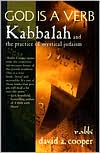Category Books
- Fiction Books & Literature
- Graphic Novels
- Horror
- Mystery & Crime
- Poetry
- Romance Books
- Science Fiction & Fantasy
- Thrillers
- Westerns
- Ages 0-2
- Ages 3-5
- Ages 6-8
- Ages 9-12
- Teens
- Children's Books
- African Americans
- Antiques & Collectibles
- Art, Architecture & Photography
- Bibles & Bible Studies
- Biography
- Business Books
- Christianity
- Computer Books & Technology Books
- Cookbooks, Food & Wine
- Crafts & Hobbies Books
- Education & Teaching
- Engineering
- Entertainment
- Foreign Languages
- Game Books
- Gay & Lesbian
- Health Books, Diet & Fitness Books
- History
- Home & Garden
- Humor Books
- Judaism & Judaica
- Law
- Medical Books
- New Age & Spirituality
- Nonfiction
- Parenting & Family
- Pets
- Philosophy
- Political Books & Current Events Books
- Psychology & Psychotherapy
- Reference
- Religion Books
- Science & Nature
- Self Improvement
- Sex & Relationships
- Social Sciences
- Sports & Adventure
- Study Guides & Test Prep
- Travel
- True Crime
- Weddings
- Women's Studies
God Is a Verb: Kabbalah and the Practice of Mystical Judaism » (Reprint)

Authors: David Cooper
ISBN-13: 9781573226943, ISBN-10: 1573226947
Format: Paperback
Publisher: Penguin Group (USA)
Date Published: September 1998
Edition: Reprint
Author Biography: David Cooper
David E. Cooper is Professor of Philosophy (Emeritus) at Durham University. His many books include World Philosophies: An Historical Introduction (1996, 2002); Existentialism: A Reconstruction (1990, 1999); and The Measure of Things: Humanism, Humility and Mystery (2002)
Book Synopsis
Rabbi David Cooper writes in God is a Verb that there is no simple answer to the question, What is kabbalah? It is a collection of ancient texts, teachings, methods, and stories, but more than that, Cooper says, it is an outlook. It is a way of looking at the world that is "founded upon mystical conceptions regarding life, death, creation and creator. It answers our questions about the meaning of life." Through an overview and explanation of cabalistic theory and practice, exercises, guided meditation, and the recounting of traditional Hasidic tales, Cooper opens up this ancient and intriguing mystical wisdom to a broad audience of seekers of spiritual truth. He shows readers how incorporating a cabalistic outlook into daily life can increase awareness, deepen connections to the divine source of existence, and help us reach lasting inner peace.
Publishers Weekly
Rabbi Cooper, who directs the Heart of Stillness Hermitage in Boulder, Colo., offers insight into the everyday practice of mystical Judaism. Using tales of the Hasidic masters as well as stories from the Torah, Talmud and Mishnah, Cooper delves into the mysteries of life and death. One of the great quests of modern religious people, says Cooper, is to find greater wisdom and higher spiritual awareness. Through these stories, he aims to show that seekers must actively pursue wisdom and awareness through meditation and study rather than await such wisdom to be revealed to them. What is the soul? What is the purpose of creation? What is holiness? These, he argues, are the questions that must form the foundation of the search. At the heart of Kabbalah, says Cooper, is the revelation of the unity of all things, a unity he cleverly illustrates by comparing DNA (science's "tree of life") to the tree of life from the Kabbalah. Exercises for meditation accompany each of these reflections. Cooper's lively prose and his syncretist attitude toward religion make this a rewarding book. (Aug.)
Table of Contents
Subjects
 Judaism & Judaica
Judaism & Judaica  General & Miscellaneous Judaism
General & Miscellaneous JudaismChristianity
 Judaism & Judaica
Judaism & Judaica  Jewish Life
Jewish LifeChristianity
 Judaism & Judaica
Judaism & Judaica  Mysticism & Kabbalah - Judaism
Mysticism & Kabbalah - JudaismChristianity
 All Religion
All Religion  General & Miscellaneous Religion
General & Miscellaneous ReligionJudaism & Judaica
 Jewish Life
Jewish Life  Jewish Life - General & Miscellaneous
Jewish Life - General & MiscellaneousJudaism & Judaica
 Mysticism & Kabbalah - Judaism
Mysticism & Kabbalah - Judaism  Kabbalah
KabbalahNonfiction
 Social Sciences
Social Sciences  Jewish Studies
Jewish StudiesReligion Books
 Judaism & Judaica
Judaism & Judaica  General & Miscellaneous Judaism
General & Miscellaneous JudaismReligion Books
 Judaism & Judaica
Judaism & Judaica  Jewish Life
Jewish LifeReligion Books
 Judaism & Judaica
Judaism & Judaica  Mysticism & Kabbalah - Judaism
Mysticism & Kabbalah - JudaismReligion Books
 All Religion
All Religion  General & Miscellaneous Religion
General & Miscellaneous ReligionScience & Nature
 Social Sciences
Social Sciences  Jewish Studies
Jewish StudiesSocial Sciences
 Jewish Studies
Jewish Studies  Jewish Life
Jewish LifeChristianity
 Christianity
Christianity  All Religion
All ReligionNonfiction
 Religion
Religion  All Religion
All ReligionReligion Books
 Christianity
Christianity  All Religion
All Religion
